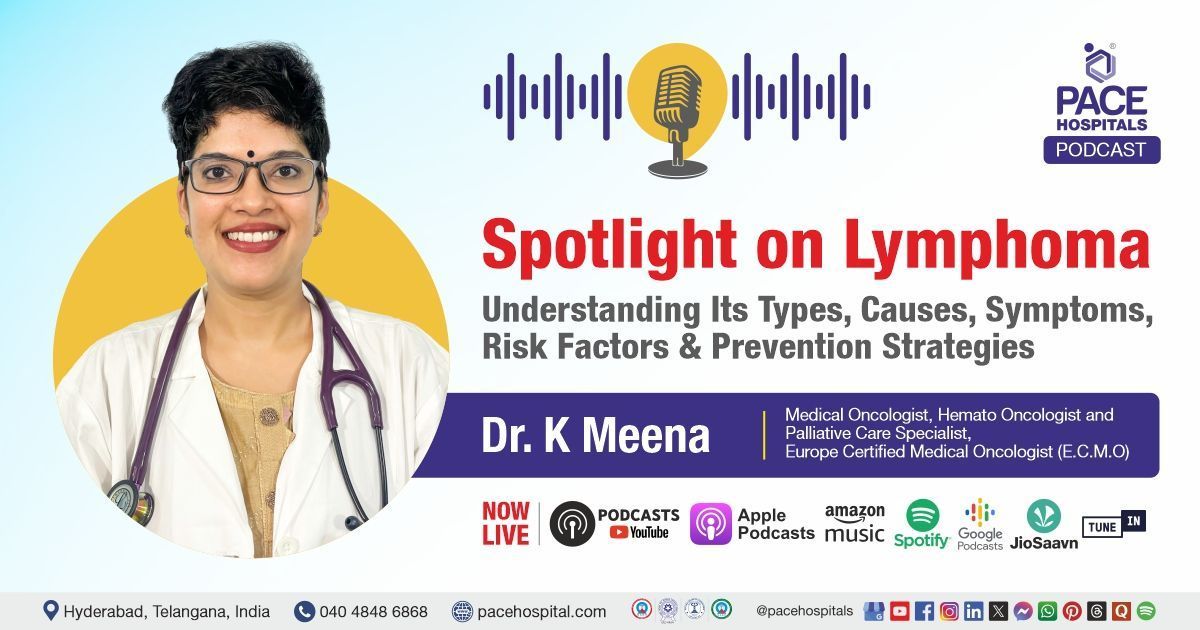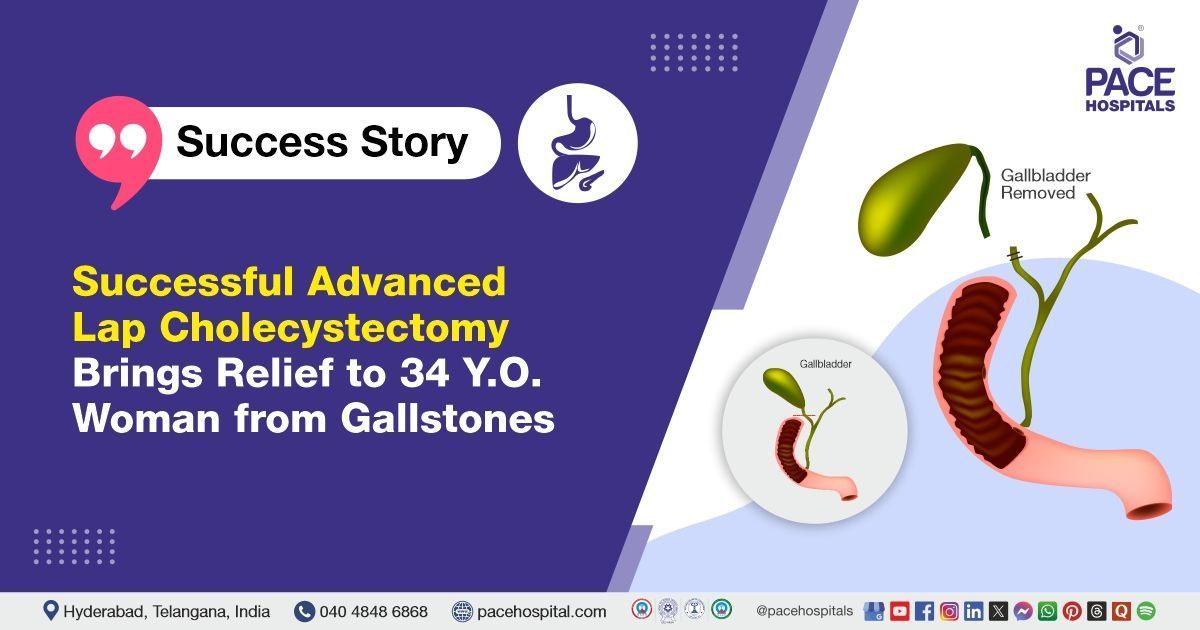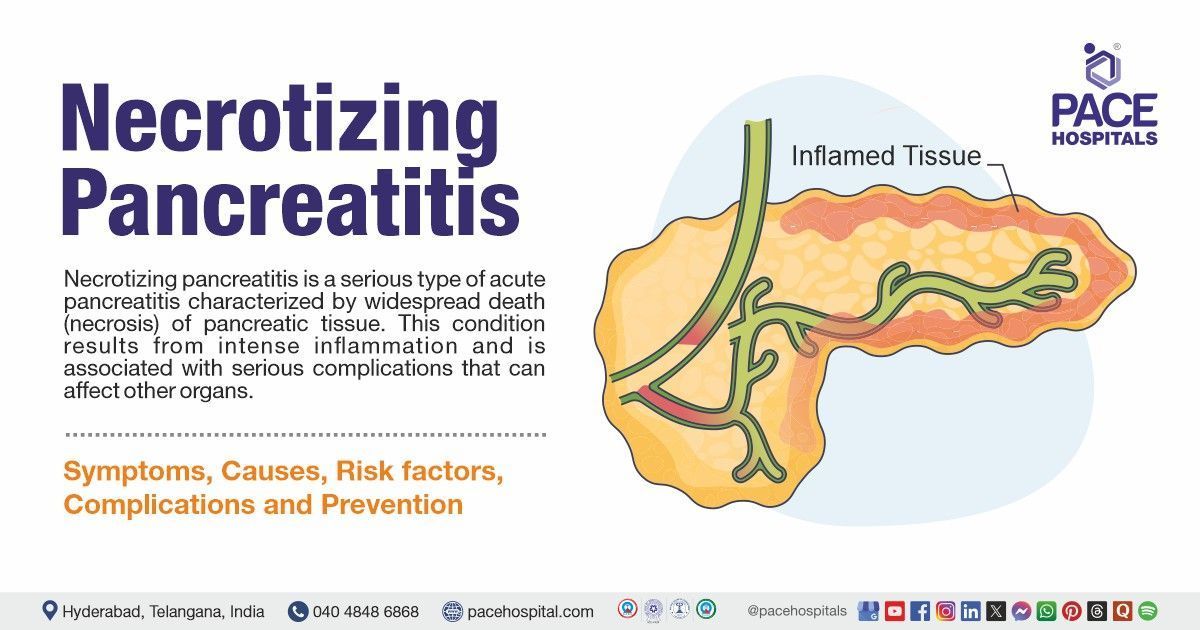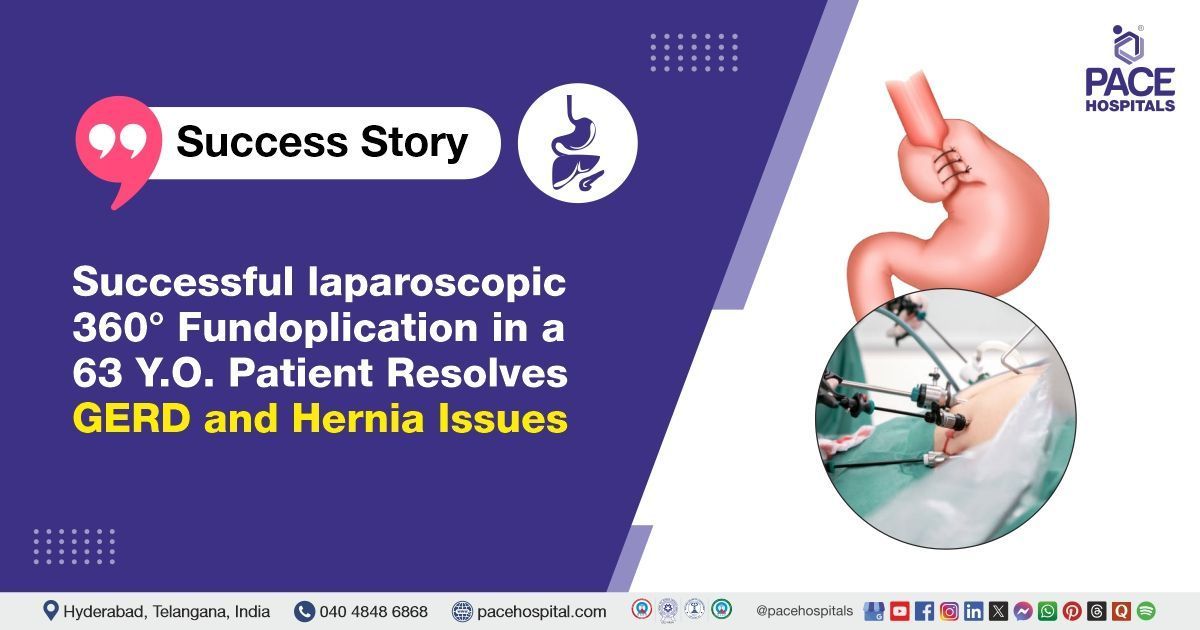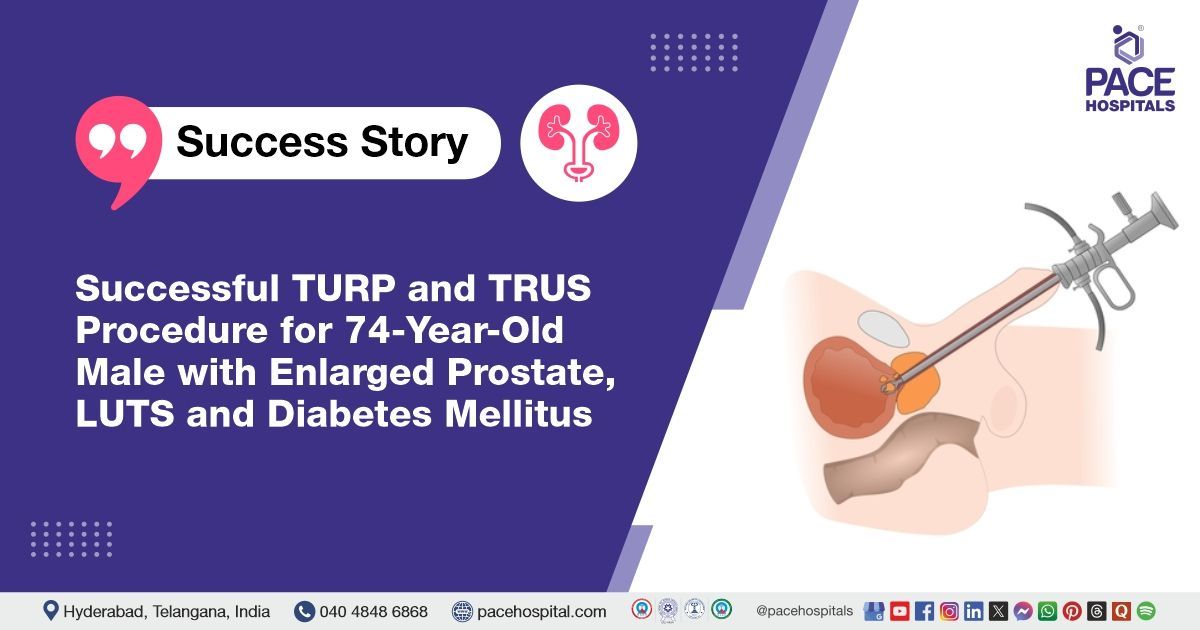Liver transplantation breathes new life in patient with decompensated liver failure and CKD | Case study
PACE Hospitals' Liver transplant team successfully performed a living donor liver transplantation (LDLT) for a 49-year-old male with decompensated liver cirrhosis and pneumonia.
A 49-year-old male patient with a history of ascites, chronic kidney disease and pneumonia was presented to the Senior Consultant Surgical Gastroenterologist and Liver Transplant Surgeon, Dr.CH Madhusudhan at PACE Hospitals, Hitech City, Hyderabad.
Medical History
Delving deeper, it was understood that the patient was a known case of decompensated chronic liver disease, ascites with hepatorenal syndrome and chronic kidney disease.
Diagnosis
Upon being admitted to PACE Hospitals and undergoing necessary investigations (blood tests, liver function tests and imaging tests such as liver Doppler), to evaluate the patient’s profile, he was found to be diagnosed with:
Decompensated chronic liver failure with chronic kidney disease and pneumonia with diabetes mellitus. The Model for End-Stage Liver Disease (MELD) Na score is 28.
To confirm any diagnostic discrepancy in view with pneumonia, the patient was also subjected to a COVID-19 test (SARC 2 COVID-19 RTPCR test) which turned out to be negative.
His anaemic profile can be traced to chronic inflammation of the liver which may cause normocytic normochromic anaemia. Also, due to hepatorenal syndrome, there is a reduction of erythropoietin (an enzyme necessary for the bone marrow to produce red blood cells) causing anaemia.
A person with advanced liver disease may develop a serious illness known as hepatorenal syndrome (HRS), which is caused by damaged kidneys. Patients with this illness typically exhibit decreased urination as they develop oliguria (low urine output), along with liver failure signs and symptoms.
A condition known as ascites causes fluid to build up in abdominal spaces. Ascites may be painful if it is severe. Liver cirrhosis is the most common cause of ascites.
Treatment
As the patient’s blood urea and protein excretion in urine are elevated due to chronic kidney disease, consultation with nephrologist, Dr. A Kishore Kumar’s opinion is considered and obtained clearance to perform transplantation surgery. Upon considering the patient’s disease condition, and opinion from liver transplantation team, Dr. CH. Madhusudhan, Dr. Phani Krishna Ravula & Dr. Suresh Kumar S; asserted that a liver transplant was the only way to salvage the patient.
Promptly the patient was put on multiple lifesaving supports, efforts were made to obtain a liver from donors. The son of the patient came forward to donate his liver to save the patient.
With necessary investigations done & clearances obtained, the patient underwent living donor liver transplantation (LDLT), receiving the right lobe modified liver graft. The procedure was supervised by the liver transplant surgeon Dr. CH Madhusudhan, and it was accomplished devoid of any complications.
The aftermath
Concerning the hepatic profile and the transplanted graft, the post-operative period was uneventful. Although bilateral pleural effusion was developed during the post-operative period, it is a complication which was anticipated in patients with MELD scores > 20. Nevertheless, through an intercostal drainage (ICD) tube, the pleural effusion was drained thus neutralising the complication. His abdominal drain output demonstrated a decreasing trend.
The necessary medicines, immunosuppressives, antibiotics, proton pump inhibitors, multivitamins, antiemetics, analgesics, antipyretics & other supportive care were given to treat the conditions of transplant, especially any rejection.
Regular tests were done to understand the overall health of the patient. It was revealed that the patient depicted a worsening renal function due to which renal-sparing immunosuppressants were given to address the issue.
In the initial days after the surgery, it was revealed that the patient demonstrated an increase in the liver enzymes depicting a degradation in liver function. To counter the same, a pulse dose of steroids was given which resolved the issues with liver enzymes and the doses of immunosuppressants were adjusted regularly as evidenced by the liver function reports.
The pulse corticosteroid therapy involves the administration of corticosteroids in "suprapharmacological" doses through the intravenous route. The pharmacological effects of a single pulse dose could extend for at least two days.
The patient and his attendees were counselled regularly regarding the prognosis of the transplantation and the graft along with the risks that may come with it. Once the patient achieved hemodynamic stabilisation, he was discharged with the necessary medications and advice for follow-up.
Pleural Effusion: An Unforeseen Consequence of Liver Transplantation
Pleural effusion is an accumulation of fluid between the layers of tissue lining the chest cavity and lungs. It is the most common postoperative pulmonary complication after lung transplantation (LT).
Bilateral pleural effusion is a commonly reported incident among the cases of post procedural liver transplant patients (mostly described as between 35-70%) most likely seen in the patients with higher MELD scores which are much sicker. Nevertheless, it must be understood that not every pleural effusion case needs a chest drain. It is only seen in 22 to 52% of procedural liver transplant patients. However, the advantages of the procedure have to be compared with the potential risks of placing a chest drain. The others can be treated with improved oxygenation and pneumonia prophylaxis.
According to current guidelines, non-urgent chest drain insertion can be avoided if the international normalization ratio (INR) is >1.5, even though the majority of recent studies in general populations do not advise improving coagulation before pleural drainage placement. When interventions are necessary, individuals who are more likely to bleed are also often given costly fresh frozen plasma and platelet concentrates in hospitals.
Request an appointment
Fill in the appointment form or call us instantly to book a confirmed appointment with our super specialist at 04048486868
Appointment request - health articles
Thank you for contacting us. We will get back to you as soon as possible. Kindly save these contact details in your contacts to receive calls and messages:-
Appointment Desk: 04048486868
Whatsapp: 8977889778
Regards,
Pace Hospitals
Hitech City and Madinaguda
Hyderabad, Telangana, India.
Oops, there was an error sending your message. Please try again later. We will get back to you as soon as possible. Kindly save these contact details in your contacts to receive calls and messages:-
Appointment Desk: 04048486868
Whatsapp: 8977889778
Regards,
Pace Hospitals
Hitech City and Madinaguda
Hyderabad, Telangana, India.
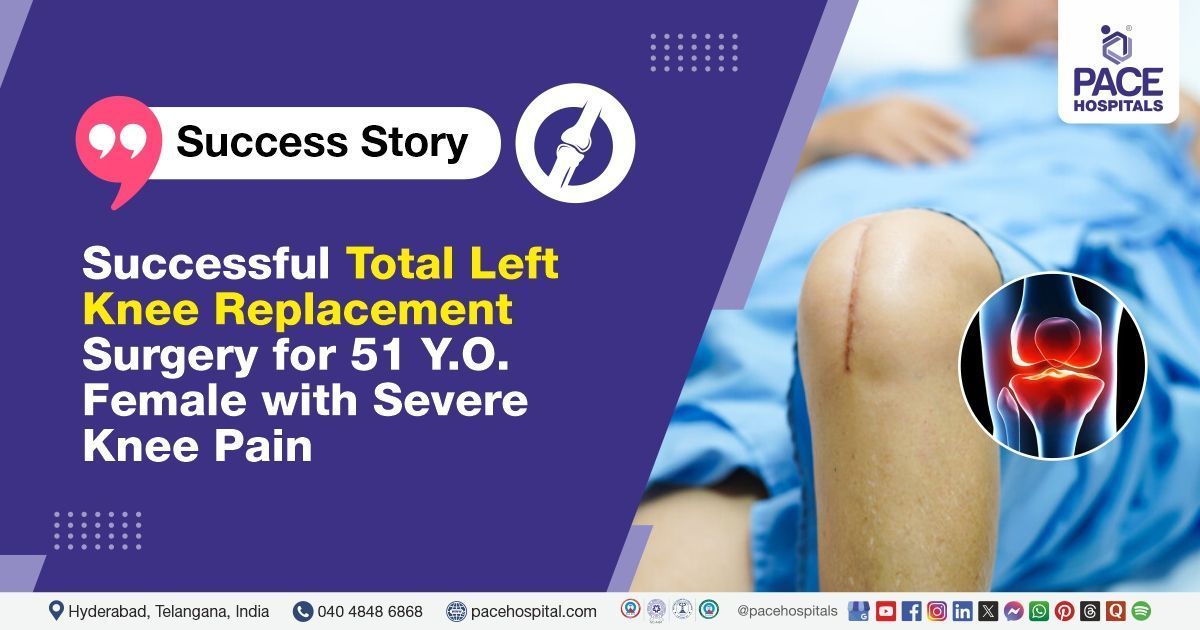
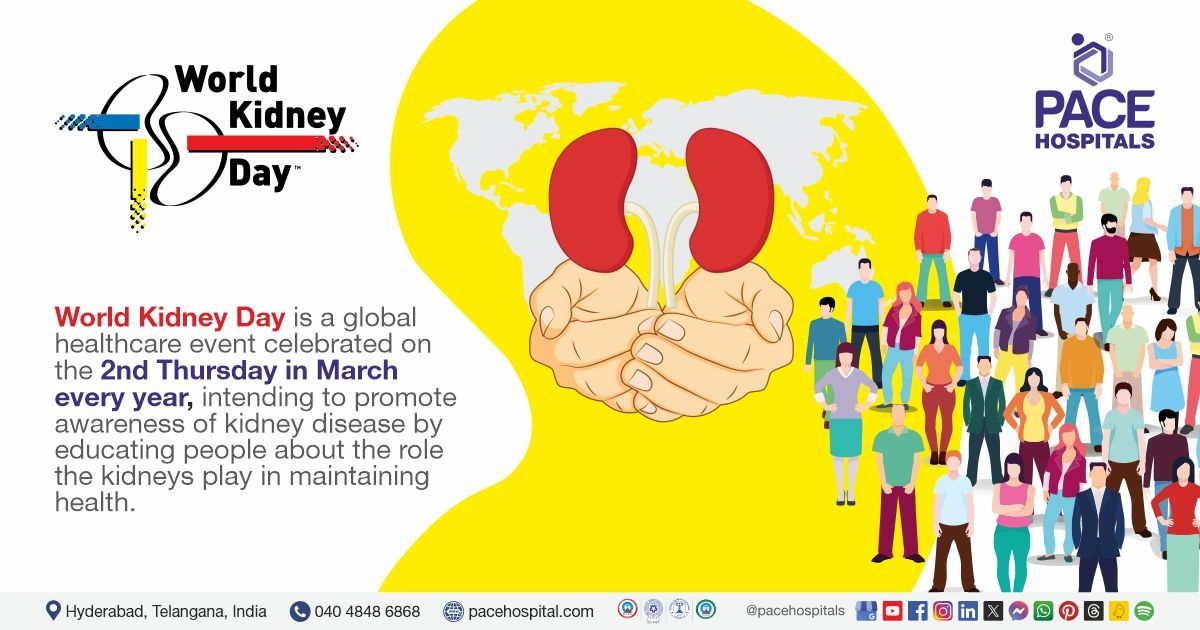
Our Locations
Metro Pillar Number C1772, Beside Avasa Hotel, Hitech City Road, Near HITEC City Metro Station, Hyderabad, Telangana, India.
Mythri Nagar, Beside South India Shopping Mall, Hafeezpet, Madeenaguda, Hyderabad, Telangana, India.
040 4848 6868
Payment in advance for treatment at PACE Hospitals, Hyderabad, Telangana, India (Pay in INR ₹)
For Bank Transfer:-
- Bank Name: HDFC
Company Name: Pace Hospitals
A/c No.50200028705218
IFSC Code: HDFC0000545 - Bank Name: STATE BANK OF INDIA
Company Name: Pace Hospitals
A/c No.62206858997
IFSC Code: SBIN0020299
Scan QR Code by Any Payment App (GPay, Paytm, Phonepe, BHIM, Bank Apps, Amazon, Airtel, Truecaller, Idea, Whatsapp etc).

CONTACT US
Call: +914048486868
WhatsApp: +918977889778
Email: info@pacehospitals.in
FOLLOW US
SUBSCRIBE
Subscribe to our newsletter and stay updated with the latest health information.
Subscribe to PACE Hospitals' Public Newsletter
Thank you for subscribing to PACE Hospitals' Newsletter. Stay updated with the latest health information.
Oops, there was an error. Please try again submitting your details.
ABOUT US
QUICK LINKS
SPECIALITIES
Disclaimer
General information on healthcare issues is made available by PACE Hospitals through this website (www.pacehospital.com), as well as its other websites and branded social media pages. The text, videos, illustrations, photographs, quoted information, and other materials found on these websites (here by collectively referred to as "Content") are offered for informational purposes only and is neither exhaustive nor complete. Prior to forming a decision in regard to your health, consult your doctor or any another healthcare professional. PACE Hospitals does not have an obligation to update or modify the "Content" or to explain or resolve any inconsistencies therein.
The "Content" from the website of PACE Hospitals or from its branded social media pages might include any adult explicit "Content" which is deemed exclusively medical or health-related and not otherwise. Publishing material or making references to specific sources, such as to any particular therapies, goods, drugs, practises, doctors, nurses, other healthcare professionals, diagnoses or procedures is done purely for informational purposes and does not reflect any endorsement by PACE Hospitals as such.


